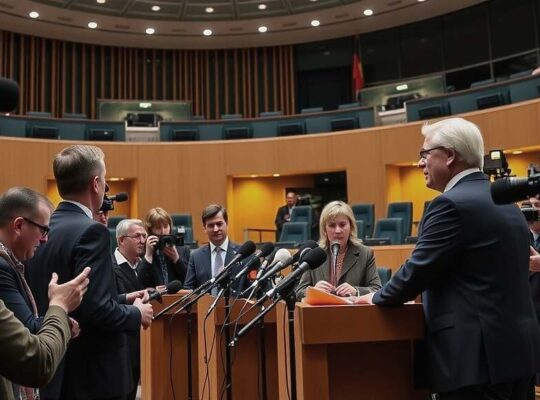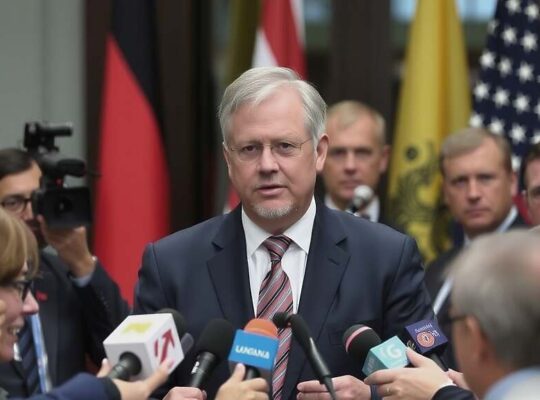Despite announced austerity measures from Health Minister Nina Warken (CDU), healthcare expenditure in Germany is projected to surge to €120 billion next year, an increase of eight billion euros. Internal calculations, revealed by the Frankfurter Allgemeine Zeitung and confirmed by Warken’s office, demonstrate a significant escalation in hospital funding despite her stated aims of cost containment. Had Warken’s measures not been implemented, the figure could have reached almost €122 billion.
This marks a historic high in German hospital spending. Hospital costs now constitute nearly a third of the projected total expenditures of the statutory health insurance system (GKV), which will range between €369 and €369.5 billion for 2026. The substantial increase signifies a dramatic shift from 2019 and 2020, when hospital expenditures hovered around €82 billion – a 27% reduction compared to current projections. The steady climb continued through 2021 (€85.9 billion), 2022 (€88 billion), 2023 (€94 billion) and 2024 (€102.2 billion).
The upward trajectory is further exacerbated by ongoing developments. Spending on inpatient services alone rose by 9.6% in the first half of the current year, amounting to a €4.8 billion increase and bringing the total to €54 billion. Overall, a further ten billion euro increase is anticipated for the entire year, a near ten percent rise over 2024 levels.
While Warken’s recently approved austerity package is expected to limit the cost increase for 2026 to 7.1% – the lowest increase since 2023 – critics argue this still represents a substantial burden on the health insurance system. Without her interventions, the growth rate would have been almost nine percent, remaining higher than 2024. The planned hospital savings of €1.8 billion are currently limited to the coming year.
A key component of these policies involves a temporary suspension of the “most favorable clause” designed to cap hospital expenditure increases to the actual cost increase in the healthcare sector as determined by the Federal Statistical Office.
Minister Warken framed these measures as necessary to prevent an increase in supplementary contributions to the GKV for the first time since 2023. Complementary policies include halving the Innovation Fund’s funding volume and capping rising administrative costs within health insurance companies, each anticipated to yield savings of €100 million.
The proposed reductions have met significant resistance from hospital associations and healthcare providers. They warn the suspension of the most favorable clause risks causing massive income losses and further destabilizing the already precarious financial situation of hospitals. The federal government counters by highlighting planned disbursements of €4 billion “immediate transformation costs” from the Infrastructure Special Fund to hospitals in 2025 and 2026, aimed at mitigating cost increases and investment gaps dating back to 2022 and 2023.
Moreover, Berlin points to the provision of €6 billion in energy relief packages to hospitals between October 2022 and April 2024, of which hospitals have already utilized €5.1 billion, underscoring the complex web of funding that continues to define the German healthcare landscape and raising questions about the long-term sustainability of its financing models.












